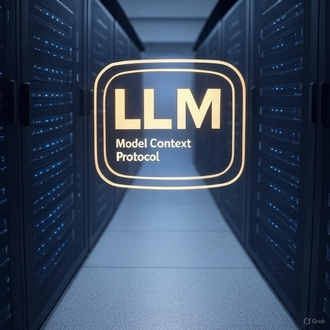| With MCP Docs Servers You'll Never Run Out Of Fresh Documentation |
| Written by Nikos Vaggalis | |||
| Thursday, 14 August 2025 | |||
|
MCP has changed the way you interact with your tools overnight. Now it targets your documentation. Wouldn't be great to have the latest and updated code samples and documentation of your favorite framework and libraries ready at your fingertips? Plus, be able to talk to it in natural language?
That dream has now come true. Thanks to MCP you can from the convenience of your ide or ai coding assistant, access all the information you need in order to build software. As such, here we present a few such MCP server solutions. And let's start with Microsoft's Docs MCP which brings Microsoft's entire official documentation ecosystem directly into your GitHub Copilot experience; be it .NET, Azure, MS Office, MS learn, you name it. The deal here is that before MCP asking Copilot would fetch answers from it's training set which could be outdated. Instead the MCP server now offers all the up to date documentation and enables real time retrieval and semantic search over it. You can now ask questions like :
The Microsoft Docs MCP (Model Context Protocol) Server is a cloud-hosted service. If on the other hand you build sites with Astro, then by using their own MCP docs server you get access to the latest Astro documentation. The server is free, open-source, and runs remotely with nothing to install locally. Then if on AWS, you can use their AWS Docs MCP Server which is dedicated to DevOps assistance by asking it questions about AWS services; configuring IAM policies, EC2 launch templates, or CloudFormation syntax. Note that it doesn't utilize GenAI; its answers are scoped only to actual AWS services with nothing being made up. The server returns structured responses like:
and easily integrates with IDEs, terminals, or dev assistants like Amazon Q. For a more encompassing solution there's Context7 MCP which does cover hundreds of popular libraries such as Next.js, React, LangGraph etc. Note that besides up-to-date information, it can also retrieve version-specific documentation and code examples directly from the source. But that's not all. There's still Docfork. Docfork is a MCP server that fetches daily-updated fresh docs from over 9000+ libraries. It syncs docs daily as well as delivers the best snippets in one MCP tool call. And for the end, we'll look at the Docs MCP Server which comes with a twist. You point it at the local filesystem or at a URL of the library in question for it to scrape the information. It will fetch all documentation pages and chunks them. Here's where the Ollama, OpenAI key or other model comes into play because the Server will generate vectors for each chunk using your chosen model. By default, this with be OpenAI's text-embedding-3-small. Alternatively you can use an embedding model from Ollama such as snowflake-arctic-embed2 or whatever else suites your needs. All document chunks and vectors will be stored in a local SQLite database. Once a job completes, the docs are searchable via your AI assistant or the Web UI by using the search_docs tool, where MCP Server will take your search query and vectorize it the exact same way as before searching the local SQLite database for any matches to return. The server has also the option to request a specific version number of the library in question, is fully open source and can run locally on your machine. That means you can also use it in an enterprise setting with private documentation, i.e. libraries that are not open source. As such, we're moving away from the limitations imposed by the constrained knowledge of the dataset that the LLM was trained upon to getting at real time, up-to-date and directly from the source documentation. In RAG's case and in order to feed the LLM with the code to work on, you first have to do some things first and developers face three issues:
Querying with MCP Doc Servers makes that a thing of the past. More InformationSupercharge Your Development with Microsoft Docs MCP Related ArticlesThree Tools To Run MCP On Your Github Repositories
To be informed about new articles on I Programmer, sign up for our weekly newsletter, subscribe to the RSS feed and follow us on Twitter, Facebook or Linkedin.
Comments
or email your comment to: comments@i-programmer.info |


